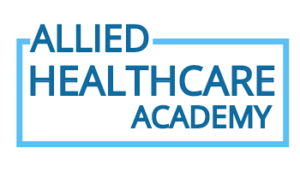Correct diet for heart health has become extremely important in todays time. There are many things you can do to keep your heart healthy and prevent heart disease. Eating a healthy diet is one important factor in maintaining a healthy heart as.
STEPS TO TAKE
Nutrition plays a vital role in cardiovascular health. A balanced diet helps to lower cholesterol and blood pressure, both of which are risk factors for heart disease. Eating plenty of fruits and vegetables, whole grains, and lean protein can help keep your heart healthy. limiting salt, sugar, and saturated and trans fats can also help reduce your risk for heart disease.

Exercise is another important factor in maintaining a healthy heart. Getting regular physical activity can help to lower blood pressure and cholesterol, as well as improve circulation. aerobic exercise is particularly beneficial for the heart, so aim for at least 30 minutes of moderate-intensity activity most days of the week.
Quitting smoking is also important for heart health. Smoking is a major risk factor for heart disease, so quitting can dramatically reduce your risk. If you’re struggling to quit smoking, talk to your doctor about getting help from nicotine replacement therapy or other medications.
Making these lifestyle changes can go a long way toward protecting your heart health. In addition, it’s important to get regular checkups with your doctor and to stay up-to-date on your vaccinations. By taking care of your heart, you can enjoy a long and healthy life.
NUTRITION FOR HEART HEALTH:
While all of the above are very important, we will discuss a few nutrition habits that you must inculcate in your daily life to remain healthy.
Reduce Trans Fats– Trans fats are made when manufacturers turn liquid oils into solid fats. Trans fats are often used in processed foods and deep-fried foods. They can also be found in some margarines, snack foods, and baked goods. Trans fats increase your low-density lipoprotein (LDL), or “bad” cholesterol levels. They also lower your high-density lipoprotein (HDL), or “good” cholesterol levels. This increases your risk for heart disease. The best way to avoid trans fats is to limit your intake of processed and deep-fried foods. Read food labels carefully to look for “partially hydrogenated oils” as an ingredient. This indicates the presence of trans fats.
Eat Plenty of Fruits and Vegetables– Fruits and vegetables are excellent sources of vitamins, minerals, and fiber. They can help reduce blood pressure and LDL cholesterol levels. They’re also low in calories, so they can help you maintain a healthy weight. Aim to eat at least five servings of fruits and vegetables every day. Good choices include leafy greens, berries, citrus fruits, and tomatoes.

Limit Your Salt Intake- Too much salt can increase your blood pressure. This puts extra strain on your heart and arteries. It can also lead to fluid retention, which can cause congestion and bloating. The American Heart Association recommends limiting your daily salt intake to 2,300 milligrams (mg), or about one teaspoon. If you have high blood pressure, diabetes, or chronic kidney disease, your doctor may recommend an even lower limit of 1,500 mg per day. You can reduce your salt intake by avoiding processed and packaged foods. These foods are often high in salt. When cooking, use herbs and spices to flavor your food instead of salt. You can also check food labels to see how much sodium is in a product.
Choose Healthy Fats- Not all fats are bad for you. In fact, some types of fat can actually help improve your cholesterol levels and reduce your risk for heart disease. These include monounsaturated fats and polyunsaturated fats, which are found in olive oil, nuts, seeds, and fish. Omega-3 fatty acids are a type of polyunsaturated fat that’s especially beneficial for the heart. Good sources of omega-3s include salmon, tuna, and other fatty fish. You can also get omega-3s from flaxseeds, chia seeds, and walnuts. When shopping for fats, look for “monounsaturated” or “polyunsaturated” on the label.
Avoid saturated fats and trans fats, which can increase your LDL cholesterol levels. These are found in fatty meats, full-fat dairy products, and processed foods.
Eat Plenty of Soluble Fiber- Soluble fiber can help reduce LDL cholesterol levels by binding to it in the digestive tract. Good sources of soluble fiber include oats, barley, legumes, fruits, and vegetables. You should aim to get at least 5–10 grams of soluble fiber per day.Add Nuts to Your Diet- Nuts are a good source of protein, fiber, and healthy fats. They can also help reduce LDL cholesterol levels. In one study, people who added about two ounces (56 grams) of nuts to their diet every day had a 5% reduction in LDL cholesterol after eight weeks. Almonds, hazelnuts, and walnuts seem to be especially beneficial. When adding nuts to your diet, choose unsalted varieties. You can also try nut butters made from

Increase water intake- staying hydrated is crucial for many aspects of health, and that includes heart health. dehydration can lead to an unhealthy heart rhythm (arrhythmia), as well as other problems such as high blood pressure.The American Heart Association recommends drinking eight or more glasses of water per day. This is especially important if you exercise regularly or are in a hot climate. Try carrying a water bottle with you throughout the day so you can stay hydrated.
Intake enough mineral and electrolytes- Minerals such as potassium, magnesium, and calcium are electrolytes that help regulate heart function. They’re also necessary for muscle contraction and nerve function. Sodium is another electrolyte that’s important for heart health. It helps regulate blood pressure and fluid balance in the body. You can get these minerals from foods such as fruits, vegetables, dairy products, meat, and fish. You can also take mineral supplements if you need to. Just be sure to talk to your doctor first to see if they’re right for you.
Making these small changes in your diet can have a big impact on your heart health. By following these tips, you can help reduce your risk for heart disease and enjoy a healthy life.
If you wish to take your passion for nutrition to the next level, get professionally certified with our courses HERE

